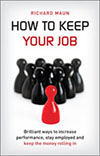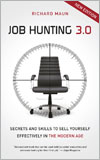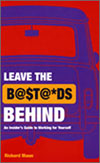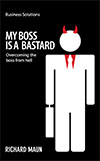better business blog
Tips and stories to add value to you and your organisation

The ‘Being Helpful’ Trap
Helpful is an interesting word. It can mean something positive and we often ask for ‘some help’ when we’re stuck and need a boost. However, helpful has a dark side too.
How can helpful be at all dark?! It’s such a friendly word, a giving sort of word!
Ah well. Helpful can imply smothering, instead of supporting. Shoe laces are needed here.
Shoe laces are the bane of a small child’s life. Us adults know how useful they are, a simple fastening that dates back to the dawn of time. Early humans discovered fire, invented the wheel and then opted for shoe laces as their third developmental trick.
I have no evidence for this blatant shoe horning of shoe laces into history, but when you think about it, try removing your laces and then going for a walk in your brogues. Not so easy is it?
Early man, and early woman, would have faced the same problem. Laces, despite being fiddly, are an excellent shoe slippage solution.
Being helpful can mean tying the shoe laces of our darling children. It’s so much quicker to do this, as we hasten out of the door on the school run, than to wait for 20 minutes, whilst little fingers struggle to tie a bow. We dive in and say ‘let me help you’ and this is undoubtedly sometimes a kindness.
The dark side is when our being helpful prevents someone else from learning. We have to learn to tie our own laces and that requires a patient parent and the space and time to make a hash of it, learn, practice and eventually get it right.
Too much ‘being helpful’ stifles learning. If we smother someone with help they may well develop learned helplessness. There’s no need for them to learn because mummy will always fix it for them.
It’s the same in organisations. Being helpful often means doing it for someone else and depriving them of the responsibility to do it themselves.
There’s a social stigma against criticising helpful people, who can pull a puppy dog expression when you call them out. I say it’s okay to invite people to stop helping and to make it clear that when they help the following things tend to happen:
1. They do other people’s work instead of their own. Task completion is delayed as they neglect what they’re actually being paid to do.
2. Problems are not resolved. Helping people can mask issues. The person being helped doesn’t get the training they need, or the extra capacity required to adequately fulfil their goals and objectives.
3. Other people can feel controlled. Instead of having the freedom to learn, they are constrained by the helpful person always butting in and, in essence, infantilising them. Not nice.
So, being helpful may be well intentioned and yet it often becomes a trap. Helpful people need to know the difference between help and support.
Helpers give. Supporters offer.
Helpers do it. Supporters create space for others to do it.
Helpers are motivated by their own desire to be liked. Supporters are motivated by their desire for others to learn.
When we support our children to tie their own laces we show them how do it, encourage them and give them space to solve the problem for themselves.
The next time someone offers you help that you haven’t asked for, maybe say a polite ‘no thanks’ and then let them know what support you might need from them (if any).
And when someone cries ‘but I was only trying to help’ we can know this is them showing us their stuff. We can be kind to them and support them to be less helpful. They will learn and get their work done and, by leaving the problem, alone create space for the organisation to sort it out.
Being helpful can be a trap. Being supportive is the way to go.
This week have fun not being helpful. We can offer support in any number of ways, and in doing so allow the other person to feel like the adult they are, and not a small child having mummy or daddy fussing over them!
Next week: Why Lots Of New Hires Fail
e-publishing
Click icon for details


recent posts
browse archive
books
Click cover to view details on Amazon

How to Keep Your Job
Brilliant ways to increase performance, stay employed and keep the money rolling in
Published 2011 Marshall Cavendish
208pp

Job Hunting 3.0
Secrets and skills to sell yourself effectively in the Modern Age
Published 2010 Marshall Cavendish
260pp

 RSS
RSS


